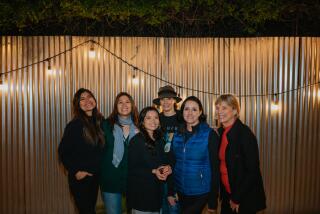Enterprise : Women’s Economic Coalition Will Close
- Share via
After eight years of helping low-income women get a start in business, the Coalition for Women’s Economic Development is closing its doors.
The Los Angeles-based nonprofit organization, which set an example for a host of similar government and nonprofit programs, decided it would be better not to duplicate services, said Mari Riddle, CWED executive director.
“Women and minorities now have more options than when we were first on the scene,” Riddle said. “Even some of the bigger banks are contemplating smaller loans below $5,000.”
The six-person agency will end operations March 31. But it will continue to exist as a nonprofit corporation to give the board of directors the option of taking on another small-business project or playing more of an advocacy role for female business owners, Riddle said.
When CWED opened in 1988, it was one of the few agencies in Southern California offering micro-enterprise training and loans. Since then, more than a dozen community-based organizations have sprung up to offer the same services. In addition, cities have started their own micro-enterprise training programs. These include an $800,000 program in Los Angeles and others in Compton, Inglewood, Southgate and surrounding cities, Riddle said.
She said CWED has provided training to more than 7,000 individuals in South-Central Los Angeles, Pico-Union, the Eastside, Long Beach and Hollywood.
More than 150 micro-businesses received loans averaging less than $6,000 each under two separate CWED loan programs. Some have gone on to grow phenomenally, Riddle said. She citied one black businesswoman in Pomona whose prefabricated industrial building company took in $1.4 million in sales in 1994.
CWED patterned itself after a Bangladesh rural bank that helped indigent women become self-sufficient, CWED founding board member Jan Breidenbach said. The agency created a Solidarity Circle Program, an uncollateralized peer loan program in which members were responsible for other members’ loans if a borrower defaulted.
CWED initially targeted impoverished women, then expanded to accept men and low-to-moderate-income entrepreneurs.
“CWED’s success highlighted the enormous reservoir of entrepreneurial talent that exists in the low-income community,” said Jing Lyman, founder of the National Coalition for Women’s Enterprise.
More to Read
Inside the business of entertainment
The Wide Shot brings you news, analysis and insights on everything from streaming wars to production — and what it all means for the future.
You may occasionally receive promotional content from the Los Angeles Times.










